On Saturday, we joined with the New Haven Bioregional Group for an ecological walk along the West River in New Haven in celebration of National Estuaries Day! We had a great turnout of about 30 local residents and elected officials who walked from the Duck Pond in Edgewood Park down Marginal Drive to the newly installed self-regulating tide gates just south of Route 1.
Walkers, led by Save the Sound’s Curt Johnson and John Champion, viewed firsthand the ecological changes in the West River that have occurred since we completed our West River Tidal Marsh Restoration Project in June.
Here are a few great photos from the event courtesy of Maria Tupper of the New Haven Bioregional Group:
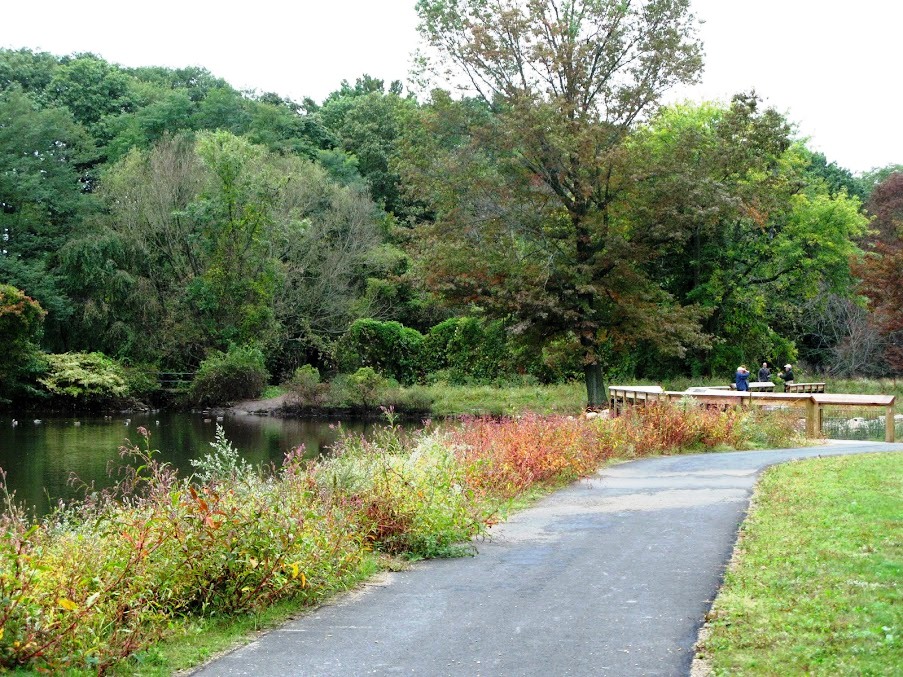
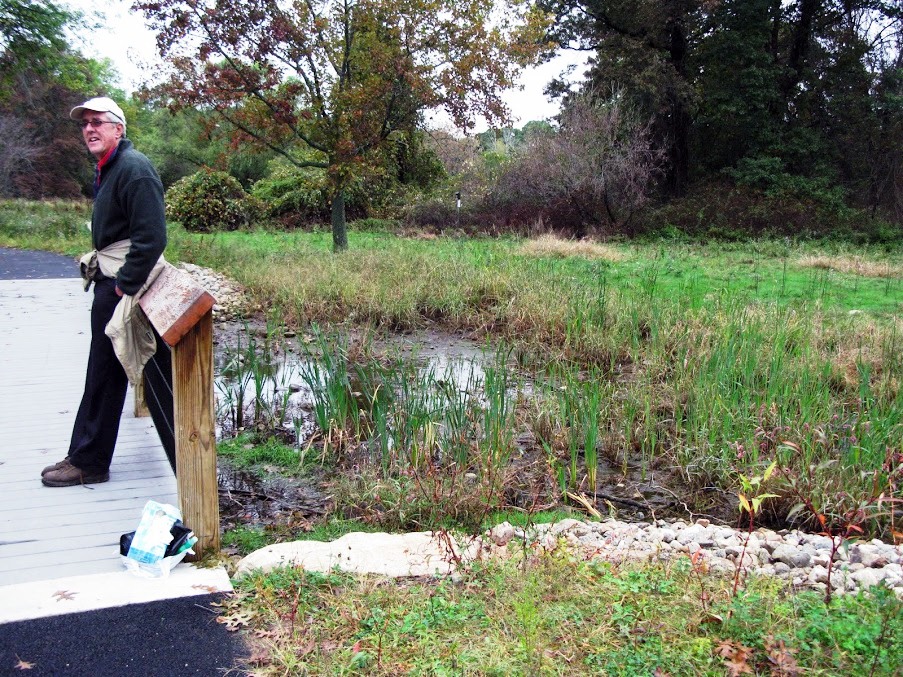
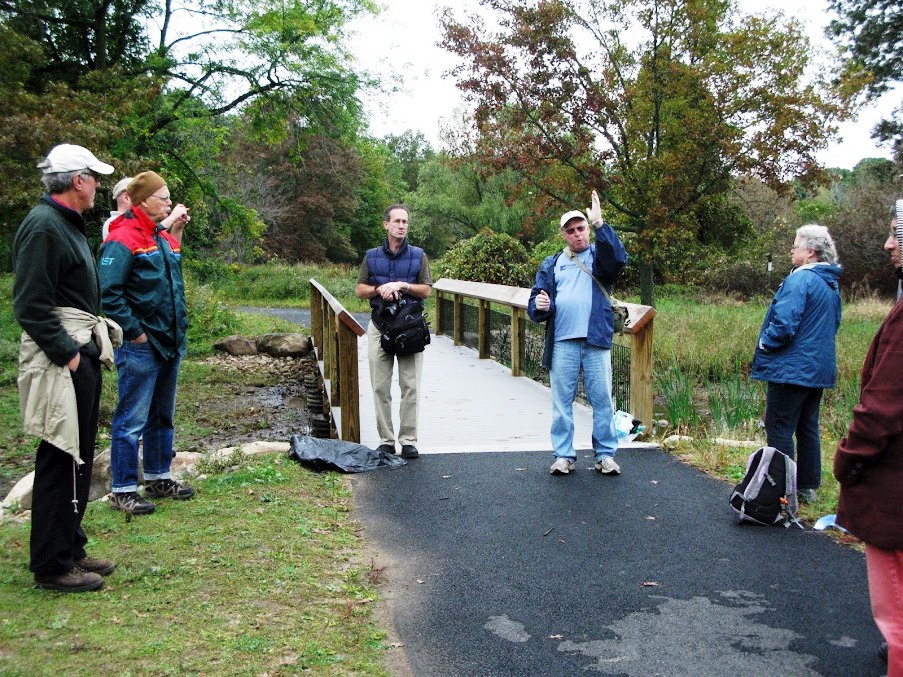
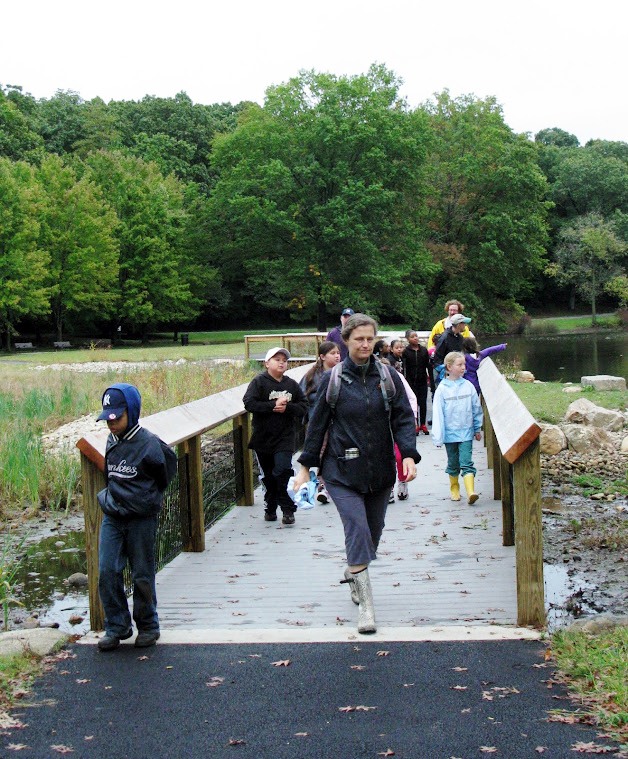
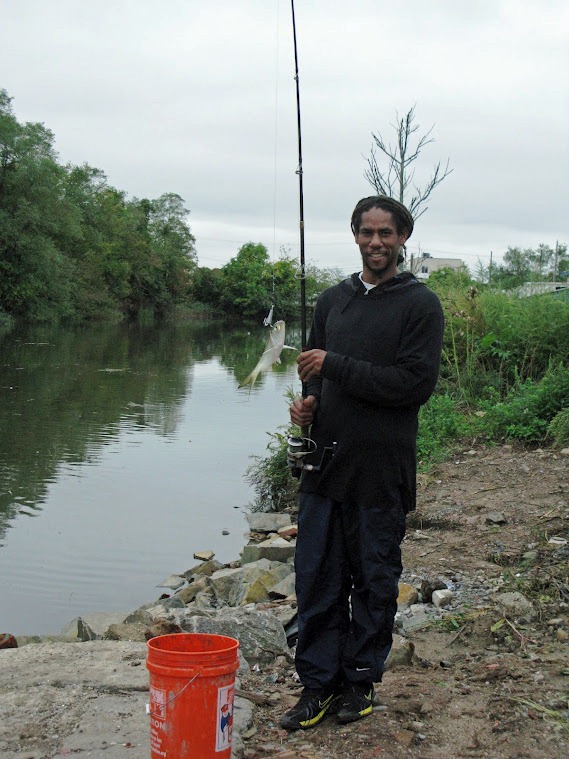
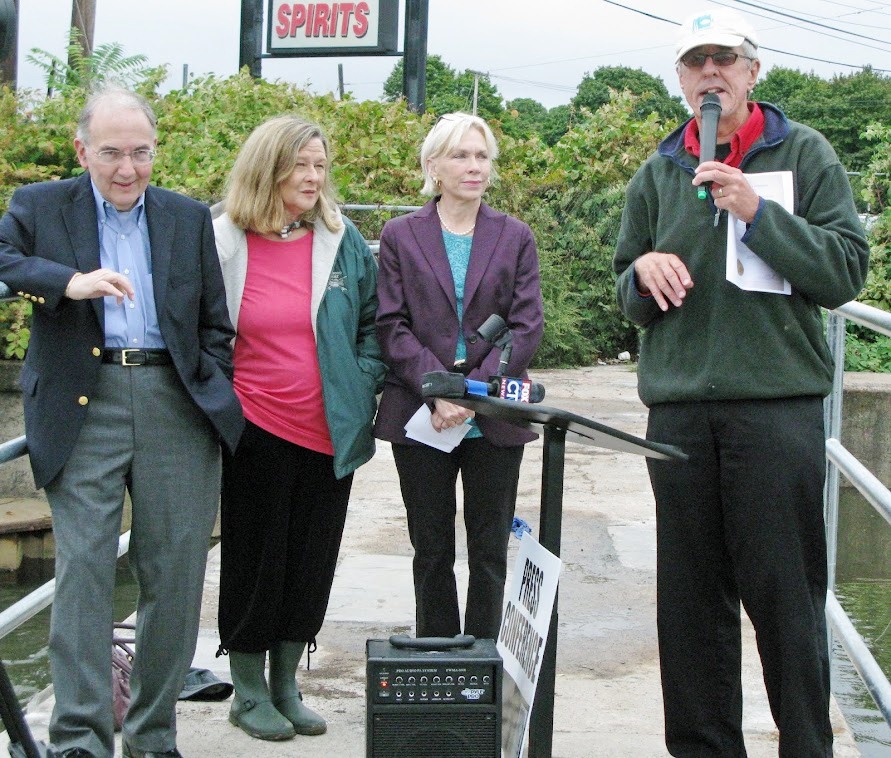
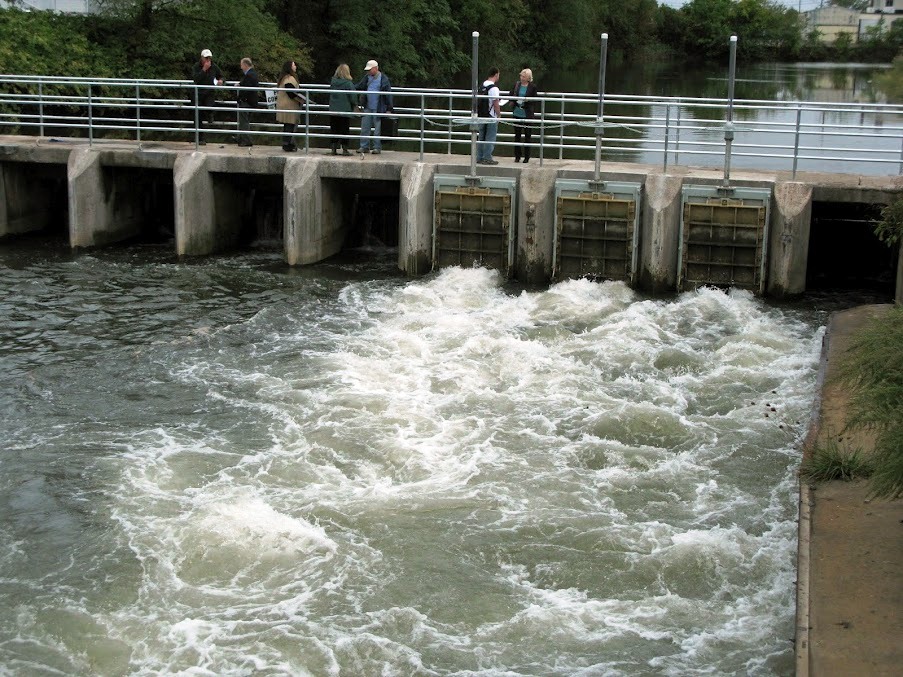
Here is the statement we put out on Saturday after the walk:
The ecological improvements we’ve witnessed in the three short months since completing the West River Tidal Restoration Project have been astounding, said Curt Johnson, program director for CFE/Save the Sound. For the first time in years, we are seeing improved water quality and large numbers of fish like menhaden and bluefish using the river above the tide gates. These drastic changes wouldn’t have been possible without NOAA’s funding support. It is essential that the Congress works to ensure that these funds are available to ensure we leverage state dollars, create local engineering and construction jobs, and protect our region’s greatest treasure, Long Island Sound.
As part of the West River Tidal Marsh Restoration Project, Save the Sound coordinated the retrofit of three timber tide gates across the West River with self-regulating tide gates to restore tidal flow, improve fish passage, and increase species diversity in the river. Additionally, Save the Sound coordinated improvements to the Edgewood Park Duck Pond, including the construction of a raised walkway to ensure continued public access to the pond.
The West River Tidal Marsh Restoration Project was one of the two projects that Save the Sound received funding for through the American Recovery and Reinvestment Act by the NOAA Restoration Center. NOAA, in conjunction with funding from the National Fish and Wildlife Foundation, Restore America’s Estuaries, and Connecticut Department of Energy and Environmental Protection, made the West River project a reality.
You can read more about Save the Sound’s habitat restoration program on our website, www.savethesound.org.
Posted by Rebecca Kaplan, director of communications for CFE/Save the Sound.
